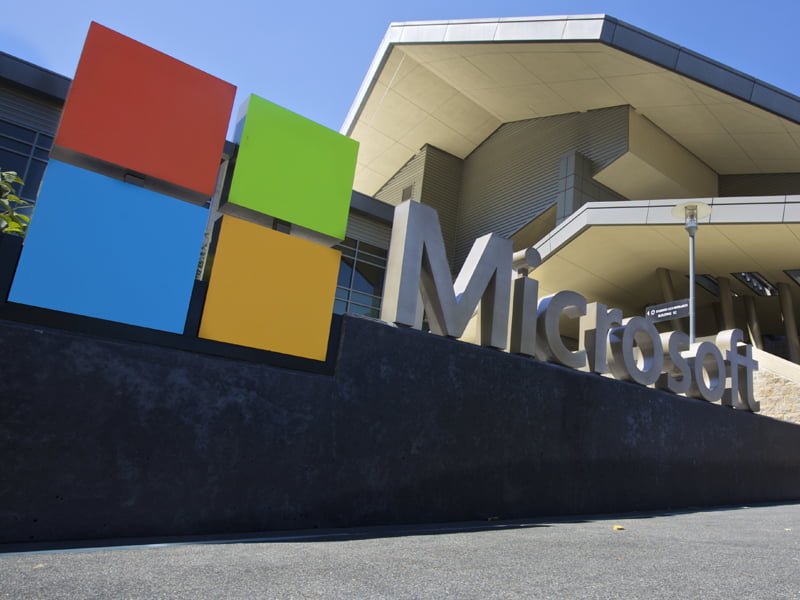Microsoft is using a vast network of subsidiaries and tax havens to minimise the tax it pays in Australia as it holds lucrative government contracts to deliver public services, according to a new report by a tax transparency group that sparked a call for the Albanese government to act.
The new analysis shows Microsoft’s global profit margin was 42.3 per cent last year but the company reported it being just 4.5 per cent in Australia.
This discrepancy suggests the company is shifting profits offshore to minimise the tax it pays in Australia and not fairly contributing to the public services that help it profit, according to the Centre for International Corporate Tax Accountability and Research (CICTAR).
The claims, and similar allegations about fellow tech giant Google, come as the Albanese Government ramps up efforts to force multinationals to pay a “fairer share” of tax and has reignited calls for more scrutiny of the tax arrangements of companies bidding for government work.

The CICTAR report, which examines Microsoft’s publicly reported tax data and national government contracts, said it appears “Microsoft does not contribute fairly to funding the public services that its global workforce and customers depend on, and from which it earns enormous profits”.
Australia is used as a case study in the report because of relatively strong tax reporting requirements and disclosures by the Australian Taxation Office.
“This data clearly exposes Microsoft’s low tax payments and low profit margins at the national level compared to global reporting.”
Microsoft’s primary Australian subsidiary, Microsoft Pty Ltd, is owned by a network of Microsoft companies that trails back to one owned via a holding company in tax haven Bermuda, according to the report.
The Australian subsidiary had revenue of over $5 billion in 2021 but reported a profit of only $231 million, the report says, finding a “pattern of apparent aggressive tax avoidance” by Microsoft in Australia.
The CICTAR findings have renewed calls from the Community and Public Sector Union (CPSU) for the federal government to prioritise ending multinational tax avoidance and ensuring that companies that are considered for government contracts pass tax standards.
“Big businesses should not be filling their pockets with taxpayer money while they duck and weave their tax obligations. The government must put an end to this,” the union’s assistant national secretary Michael Tull said.
“If a business wants a government contract, then they have to be completely transparent and show that they are meeting their tax obligations here in Australia.
“The tax that Microsoft and other multinational companies should be paying could be invested in cutting wait times for services, investing in easier and faster digital services, better services and more public sector jobs for regional Australia.”
This week the Daily Telegraph revealed Google Asia Pacific – the subsidiary that the Australian Government and local businesses pay – had a 2021 tax bill of just $232 million on a profit of $4.37 billion, for an effective tax rate of 5.3 per cent.
The Albanese Government made an election commitment to make multinationals pay a “fairer share” of tax in Australia by implementing the OECD/G20 two-pillar solution on reforms that included a global minimum corporate tax rate of 15 per cent.
“Australia was one of 130 countries that endorsed the solution to address tax challenges arising from digitalisation and globalisation,” assistant minister for Treasury Dr Andrew Leigh said this month in launching consultations on the implementation.
“This historic global effort will help ensure that multinationals pay their fair share of tax, help stop the ‘race to the bottom’ on corporate tax rates, and support the domestic and global economy.”
CICTAR has previously criticised the awarding of Australian government contracts to “multinational tax dodging tech giants” and is raising similar concerns with AWS and global consulting firms.
The group says its latest examination of Microsoft further demonstrates the need for more scrutiny in the tender process.
CITAR conservatively estimates Microsoft was awarded nearly $200 million from the Australian Government in the last five years. But this figure does not include state and territory contracts or the $800 million whole-of-government arrangement Microsoft holds with the federal government through technology partner Data#3.
A spokesperson for Microsoft Australia declined to comment on the apparent discrepancy between it’s Australian and global profit margins.
“Microsoft is fully compliant with all local laws and regulations in every country in which we operate,” the spokesperson told InnovationAus.com
“We serve customers in countries all over the world and our tax structure reflects that global footprint.”
Google Australia was contacted for comment.
Do you know more? Contact James Riley via Email.

